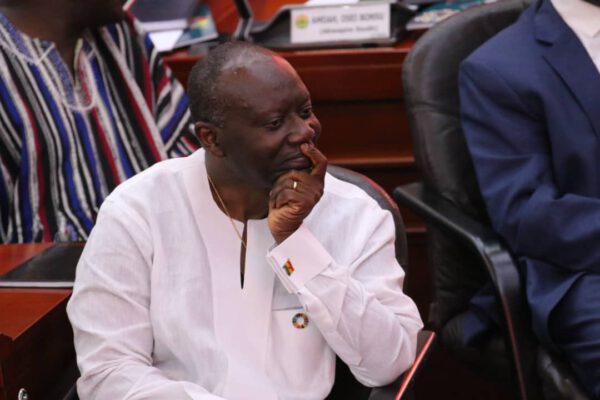
Revenue collection has remained sluggish in the first five months of the year in spite of a marked recovery in economic activities and the introduction of new taxes this year.
Data from the Bank of Ghana (BoG) showed that total revenue and grants amounted to GH¢22.6 billion (5.2 per cent of Gross Domestic Product (GDP) in the first five months of the year, compared to the same period in 2020 when it was GH¢20.26 billion, equivalent to five per cent of GDP.
The central bank said in its Monetary Policy Committee (MPC) statement issued yesterday, July 26, that the outturn for the first five months of the year was below the projected amount of GH¢26 billion, equivalent to six per cent of GDP.
The government is aiming to collect GH¢72.5 billion in total revenue and grants, equivalent to 17.6 per cent of GDP, this year.
An Economist and a Researcher, Dr Said Boakye, said the provisional data showed that the government would not be able to meet its revenue target for the year and that could impact negatively on the deficit target for the 2021.
It shows that revenue is not performing. In fact, the revenue performance is surprising in the sense that revenue measures have been introduced in the form of taxes on petroleum, sanitation and the COVID-19 levy and economic activities are picking up as the pandemic eases.”
Read also: Covid-19: Bonuses, allowances of State-Owned Enterprise workers slashed
I thought that revenue would have been returning to normalcy but that is not the case from the data,” Dr Boakye, who is the Head of Research at fiscal policy institute, the Institute for Fiscal Studies (IFS), said.
As a ratio of GDP, total revenue and grants was 7.4 per cent in 2017; 7.2 per cent in 2018 and 5.6 per cent in 2019.
Deficit
In the statement to announce the decision of the MPC after its 101th meeting, the BoG said the sluggish growth in revenue and grants, coupled with a faster than programmed execution of expenditures, resulted in a budget deficit of 4.6 per cent of GDP on cash basis in the period under review, against the target of 4.4 per cent of GDP.
It said the budget deficit exceeded its target mainly on the back of revenue underperformance.
The primary balance also recorded a deficit of 1.6 per cent of GDP compared to the target deficit of 0.9 per cent of GDP,” the statement, which replaced the regular press conference by the MPC, said.
Implications
Dr Boakye said it was surprising that revenue collections had remained bearish in 2021 in spite of the new taxes and the visible improvements in economic activities.
He said the development portended a grim outturn for government’s target, which was initially criticised as overambitious.
He said his analysis of the data showed that revenue and grants had grown by 11.4 per cent in the first five months of 2021, a year the government was aiming to grow it by 30.4 per cent.
If in five months, you could manage only GH¢22.6 billion, then what is the guarantee that you can collect GH¢72.5 per cent,” he asked.
Dr Boakye called on the Ghana Revenue Authority (GRA) to double up its efforts at revenue mobilisation to help make up for the slow performance and reduce the pressure it would pose to the deficit target.
He said at this pace, the fiscal deficit risked ending in the double digits, above the budget target of 9.5 per cent of GDP.
Policy rate
Meanwhile, the MPC has maintained its benchmark rate, the policy rate at 13.5 per cent.
The Governor of the BoG and Chairman of the MPC, Dr Ernest Addison, said in the statement that the decision followed a moderation in inflationary pressures.
Headline inflation has eased sharply and reverted within the medium-term target band, driven mainly by the tight monetary policy stance and some base drift effects. The latest forecast remains broadly unchanged, with inflation projected to remain within band and around the central path in the forecast horizon, barring any upside risks from fiscal pressures.”
“On the whole, the committee assessed that the risks to inflation and growth were broadly balanced and decided to keep the policy rate at 13.5 percent,” Dr Addison said.

